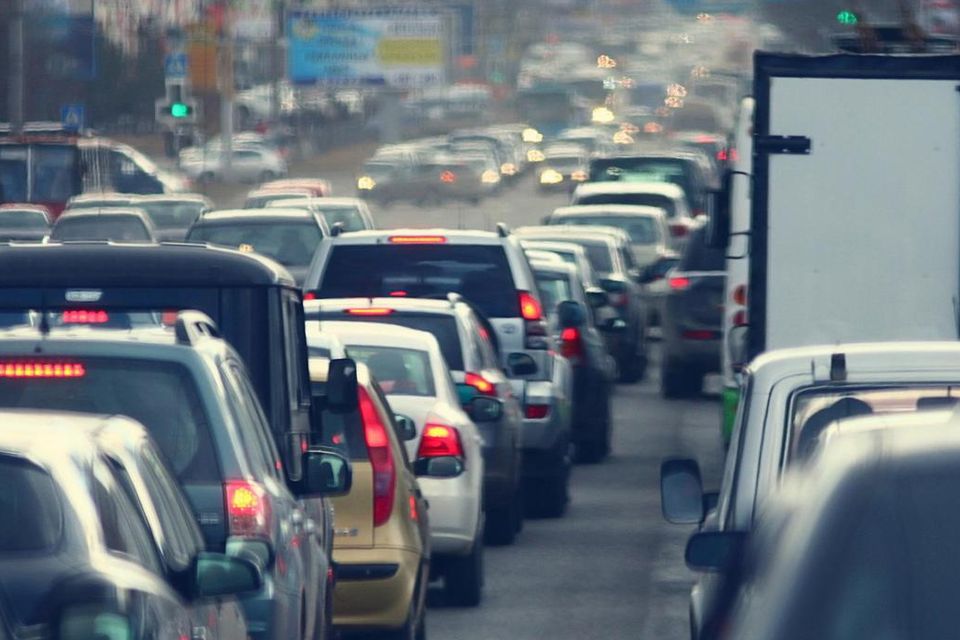‘A landmark moment’ – EU Parliament votes to end sale of petrol and diesel cars by 2035
Petrol and diesel cars will be phased out by 2035 in Ireland and across the EU.
The European Parliament has voted to end the sale of any new petrol or diesel engine cars by 2035 in a landmark European Green Deal as well as committing to reduce overall car emissions by more than half (55pc) in the next seven years.
MEPs welcomed the move to end internal combustion engine car sales, saying that it must come with an unprecedented level of investment in alternative and public transport.
The vote on "CO2 emission standards for cars and vans" passed in the European Parliament today by 340 votes in favour to 279 against.
“Today we set out a new vision for our towns and rural areas. A Europe built for people, not for traffic,” MEP Grace O’Sullivan said in a European Parliament debate in Strasbourg today.
MEP O’Sullivan said roughly one fifth (18pc) of Ireland’s total emissions come from road transport, “so this is a crucial sector to support in the transition to a more sustainable future”.
“It’s also one of the only areas where we already hold all of the keys to solve the issue at hand - strong investment in public transport, pedestrian friendly towns and affordable electric vehicles. Rural Ireland in particular should be supported as a priority.
Read more
“The current cost of living crisis has seen fossil fuel companies make the biggest profits in history on the backs of working families. We need to move towards energy independence in Ireland, including cutting our dependence on foreign oil, gas, petrol and diesel,” MEP O’Sullivan said.
This legislation marks a step forward in terms of climate ambition and includes a bonus for car manufacturers who improve their electric vehicle output. The measure faced strong lobbying from the car and fossil fuel industries.
The European Union will also propose on Tuesday tougher CO2 limits for heavy goods vehicles, requiring new trucks to cut emissions by 90pc by 2040 to help mitigate climate change, officials said.
The aim is to bring the transport sector in line with the EU's goal to have zero net greenhouse gas emissions across its economy by 2050.
A draft of the proposal, seen by Reuters, did not specify the final target but said the EU aimed to drive industry-wide investments in zero-emission vehicles and boost innovation.
"Initiatives at the national and local levels will not be sufficient. A lack of coordinated EU action would translate into a risk of market fragmentation," it said.
A 90pc target would fall short of the zero emissions goal that the Netherlands, Belgium, Denmark and Luxembourg called for last month. Some other EU countries have argued a 2040 zero emissions target is too early for manufacturers to meet, diplomats said.
Campaigners said new CO2-emitting trucks registered in 2040 would still be on the road in 2050 - thwarting the bloc's aim to reach net zero emissions by that date.
"Polluting trucks will continue to be sold for years longer than necessary, making the EU's net zero goal impossible," said Fedor Unterlohner, freight manager at campaign group Transport & Environment.
Trucks in the EU were, on average, 14 years old in 2020, according to data published last year by the European Automobile Manufacturers' Association.
The European Parliament and EU countries must negotiate and approve the rules before they come into force.
Swedish truck maker AB Volvo started series production of heavy electric trucks last year, and is aiming for half of its global truck deliveries to be electric by 2030.
Other routes to decarbonise trucks include switching from combustion engines to hydrogen fuel cells, although these are not expected to be available in large numbers until the second half of this decade.
Join the Irish Independent WhatsApp channel
Stay up to date with all the latest news















